When Linden Fraser went into cardiac arrest at her home in Invergordon, it was a pair of volunteer first responders who first arrived to help.
Mrs Fraser was at home with her daughter Debbie when she fell ill two years ago.
Her daughter quickly phoned 999 and started to perform CPR.
It was a particularly traumatic time, as Mrs Fraser’s husband died of a heart attack at just 43 – making the family all too aware of the need for swift action.
Two volunteers from the Emergency Community Rescue group quickly arrived and took over the CPR.
Michael O’Neill, 44, and David Ridgeway, 38, both from Alness, used their CPR training to bring her back to a stable condition before an ambulance and doctor arrived.
‘I wouldn’t be here to tell the tale’
Mrs Fraser, 70, said: “I feel absolutely amazed at what they did for me. While it happened, I was totally unconscious.
“I woke up in hospital to this bright light – I felt was in heaven. Then I seen the face of a nurse asking for my name.
“I was in hospital for about 10 days.
“If they didn’t arrive here first, then maybe I wouldn’t be here to tell the tale.”
Mrs Fraser is just one of the many people that Emergency Community Rescue has helped since it was set up in 2017.
Mr O’Neill founded the group to fill the gap between a 999 call and the arrival of an ambulance.
He said: “There is one ambulance in Alness. So if the ambulances are all out, then nobody goes.
“The ambulance service is great but if they are already dealing with a sick person then there is nothing else they can do.
“It can sometimes be half an hour, or a full hour, it just depends on the situation.”
‘Grown from strength the strength’
The first responders take calls in the Alness and Invergordon areas.
Mr O’Neill said his group has “grown from strength to strength” and now has 12 members – meaning they can usually arrive at call-outs within 10 minutes.
Every day they get at least one callout. Last Sunday, they had five.
And with the ongoing pressure on the ambulance service, the group is appealing for support to enable them to continue helping those in need.
Members of the team have expert training, some of which is provided by the ambulance service.
But they must pay for their own specialist equipment, with each response bag costing around £1,800 each. The kit includes items such as oxygen and a defibrillator.
‘People don’t even realise they are volunteers’
Mr O’Neill says no one in the team “gets paid a single penny” and they all do it just to help the community.
The group also gets involved in searching for missing people, helping drunk people get home, and driving doctors to work when it snows.
Mr O’Neill and Mrs Fraser have kept in touch since her heart attack two years ago.
She said: “I am on heart tablets now and have had no problems since.
“I feel very lucky to still be here.
Mrs Fraser believes “They need to get recognition for what they are doing.
“I think some people don’t even realise they are volunteers.”
Currently, the group relies on community fundraising to purchase their equipment and fuel their car for traveling the long distances.
Their main method involves on going to Morrisons with buckets a few times a year, but they try not to in case a callout happens while they are there.
Mrs Fraser said: “My husband died of a heart attack at 43.
“By the time the ambulance got to him it was too late. Maybe if there was people like this around then, he could have been saved.”
To find out more about Emergency Community Rescue, visit here.
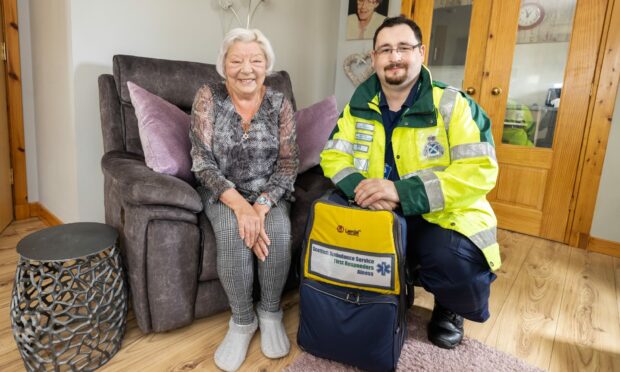
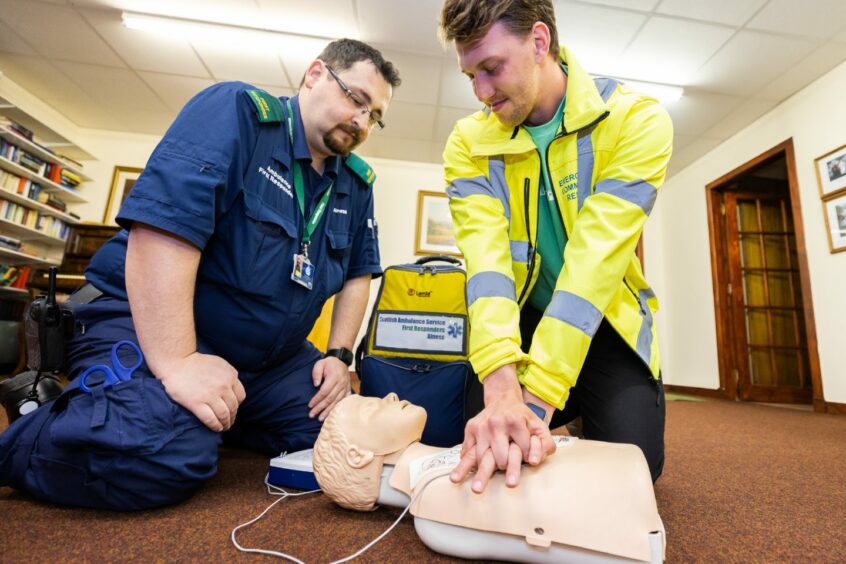
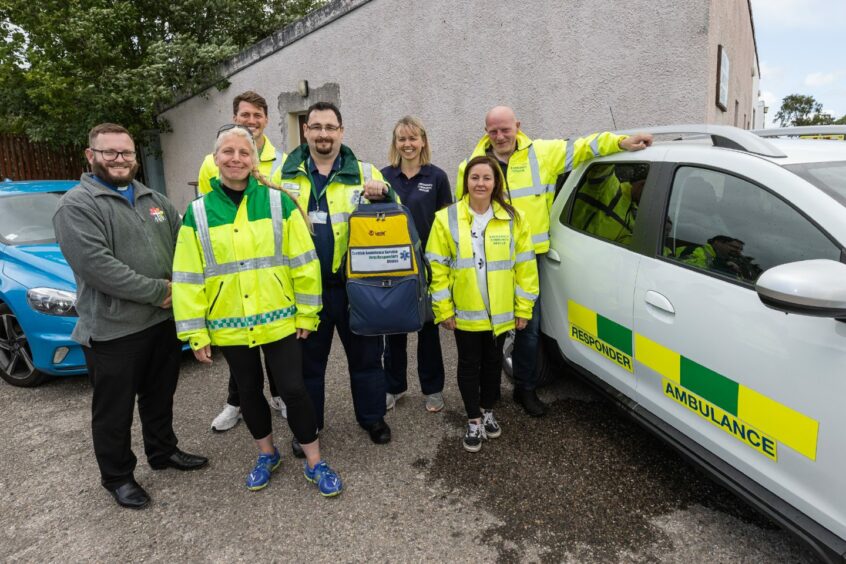
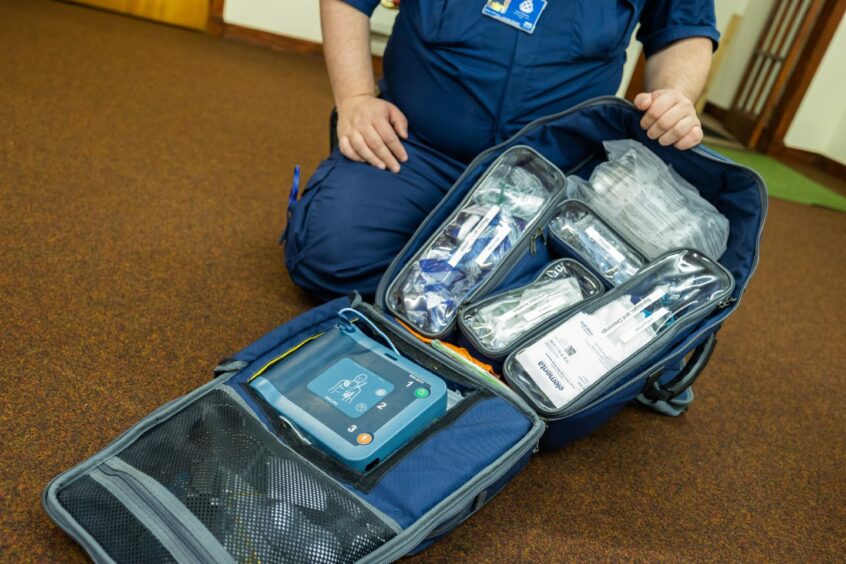
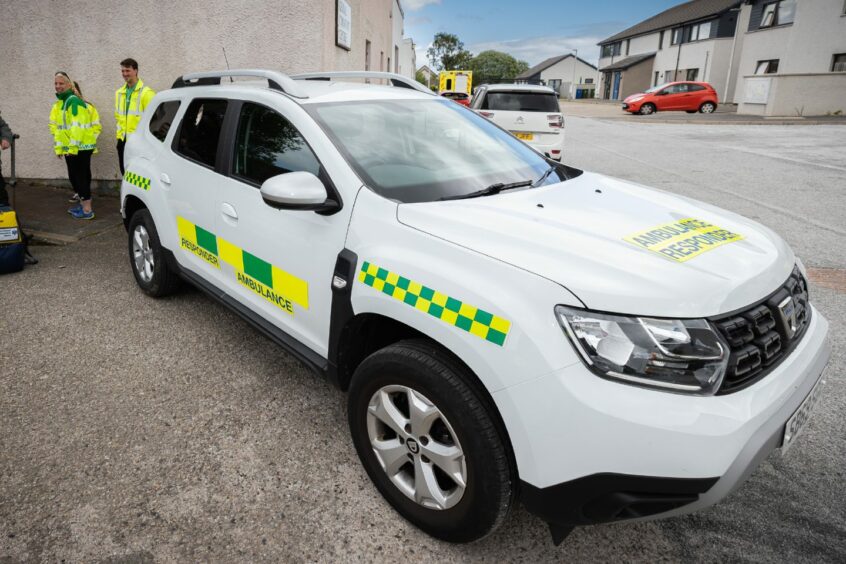
Conversation